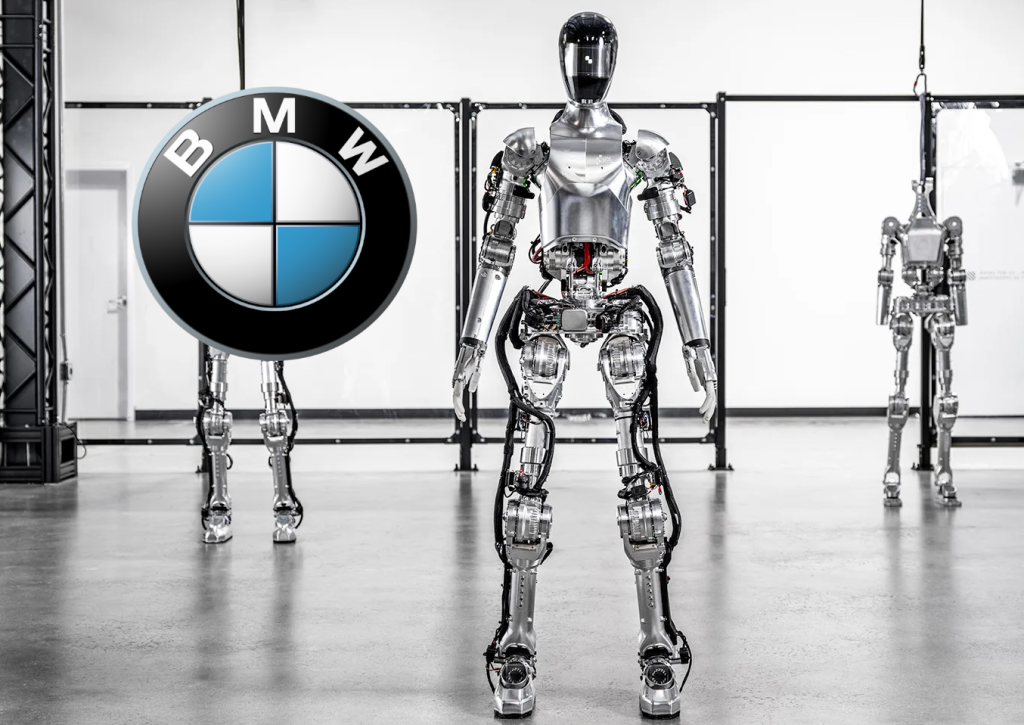Artificial intelligence (AI) is making waves across industries, and the auto sector is no exception. As part of this technological revolution, BMW is incorporating AI into its manufacturing processes to make vehicle assembly more efficient and precise. While AI’s impact on autonomous driving has gained widespread attention, the technology is also transforming how vehicles are produced, creating a more streamlined and cost-effective production line.
BMW’s plant in Spartanburg, South Carolina, is leading the way in this innovative shift. The factory, spanning more than 8 million square feet, is a critical hub for BMW’s operations in the U.S., producing about 60% of all BMW vehicles sold in the country—over 1,500 vehicles each day. In recent years, the company has integrated AI technology into various aspects of its assembly process, driving significant improvements in efficiency.
AI-Driven Precision in the Body Shop
One of the most notable AI applications at the Spartanburg plant occurs in the body shop. This section of the factory is responsible for welding metal studs onto the frames of SUVs, a task that involves the application of between 300 and 400 studs on each vehicle. Given the scale of production, that amounts to nearly half a million studs welded every day. In the past, human workers would check for errors and make manual adjustments, but AI has taken over this responsibility.
The AI system now ensures that each stud is perfectly placed on the frame. If a stud is misplaced, the technology instantly alerts the robots, prompting them to correct the error without requiring human intervention. According to Curtis Tingle, BMW Group Manager, this AI-driven system has completely removed the need for human decision-making in this aspect of production. “It’s a fully closed loop,” Tingle explains, with AI handling the precision work autonomously, which has significantly boosted productivity and reduced errors.
Efficiency Gains and Cost Savings
The AI enhancements have paid off in more ways than one. Tingle reports that BMW has achieved five times the efficiency it initially expected with the AI system. Moreover, the implementation of the AI stud correction technology has saved the company over $1 million annually. This breakthrough allowed BMW to redeploy six workers who were previously responsible for manual corrections, enabling them to focus on other areas of the factory.
AI-Enhanced Quality Control
AI is also improving quality control at BMW’s Spartanburg plant. The assembly line is equipped with 26 cameras that continuously monitor the vehicles as they move through the production process. These cameras take detailed photographs of each vehicle, which are then analyzed by AI software to identify any potential defects or issues.
Camille Roberts, IT Project Lead at BMW, emphasizes that the AI system is crucial for spotting issues that human workers may have missed. “Before the upgrade, it wasn’t possible for human workers to check every vehicle in such detail,” Roberts says. The AI technology flags any problems, allowing human inspectors to address them before a vehicle leaves the factory. This level of inspection ensures that only the highest-quality cars are shipped out to customers.
The Digital Twin: Revolutionizing Factory Management
In addition to enhancing production lines, BMW is leveraging AI to manage its entire factory more effectively. The company has introduced factory scanner devices worn by workers, which capture high-resolution images and measurements of every inch of the factory floor. These images are then used to create a 3D “digital twin” of the entire plant.
This digital model allows BMW to simulate potential changes to the factory’s layout or production process without disrupting the actual operations. Factory planners can access these detailed digital blueprints remotely and use them to analyze the impact of proposed changes, reducing downtime and optimizing efficiency. Previously, this process took months, but with AI, it can now be completed in days.
The Future of AI in BMW’s Manufacturing
Oliver Bilstein, Vice President of Logistics and Production Control at BMW, notes that AI technology still has untapped potential within the company’s manufacturing operations. In the future, the AI system will be able to learn and adapt autonomously, discovering new ways to improve the efficiency of the assembly line without human intervention. This self-learning capability will allow BMW to continually refine its processes and maintain its competitive edge in the automotive industry.
As AI continues to evolve, BMW is positioning itself at the forefront of this technological wave. From automating precision tasks to enhancing quality control and revolutionizing factory management, AI is reshaping how the company manufactures its vehicles. The integration of these advanced technologies not only improves efficiency and reduces costs but also sets a new standard for smart manufacturing in the automotive industry.
